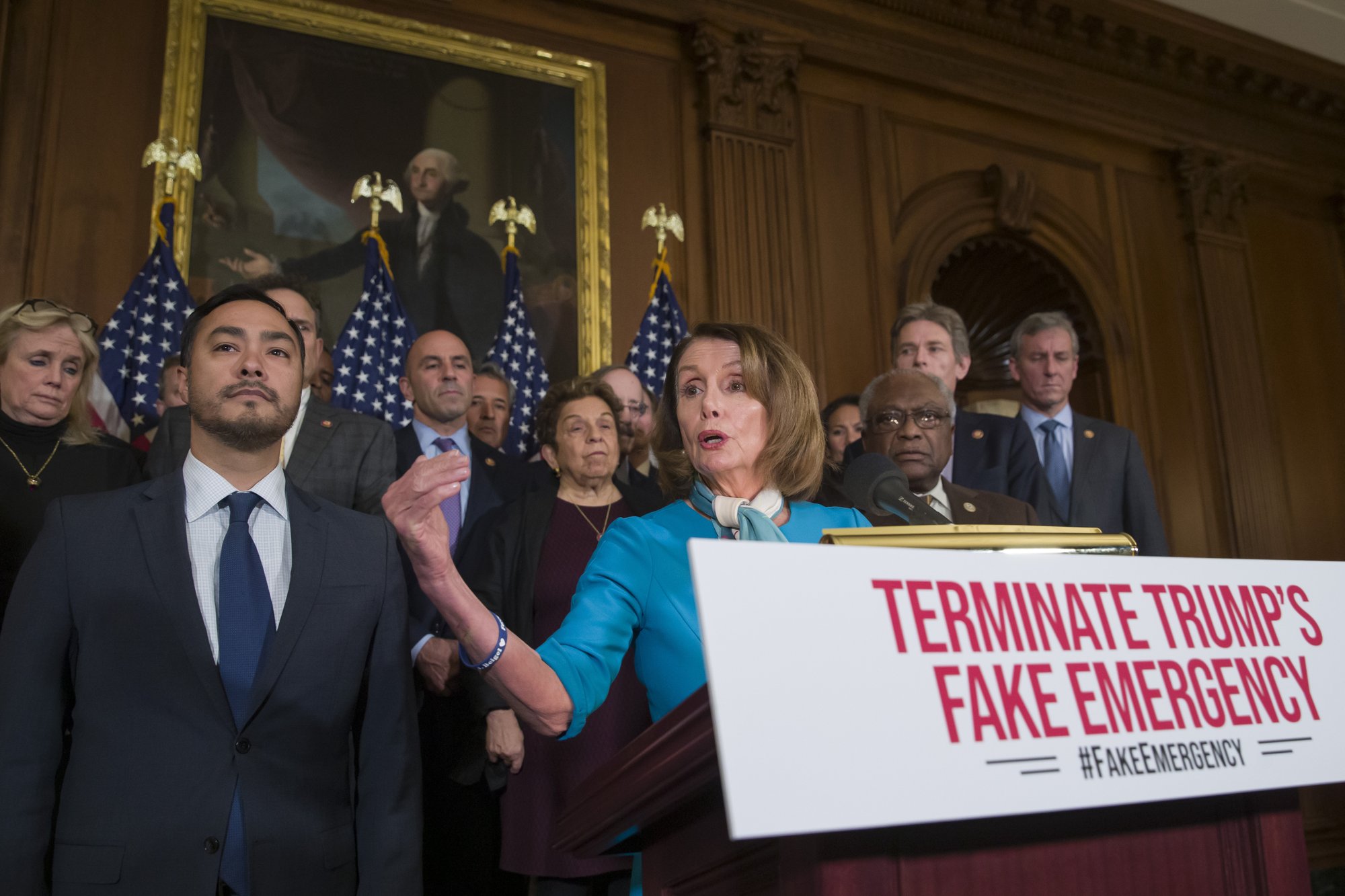
US House Speaker Nancy Pelosi of Calif., accompanied by Rep. Joaquin Castro, D-Texas, left, and others, speaks about a resolution to block President Donald Trump's emergency border security declaration on Capitol Hill, Monday, Feb. 25, 2019 in Washington. (Photo: AP)
The US House of representatives passed a resolution Tuesday to end the national emergency declared by President Donald Trump. Trump himself has previously made it clear that he will veto the resolution even if it eventually passes both chambers of Congress.
Under the National Emergency Act of 1976, US Congress has the power to end a national emergency declared by the President. The latest vote in the House will now send the resolution to the Senate. Unlike most legislative processes, Senate Republicans won't be able to use their majority to keep the resolution from reaching the full chamber.
At least three Republican Senators have openly said they will support the Democrat-sponsored resolution, US media reported. That means the resolution needs only one more Republican vote to pass the Senate. Some Republicans see the Trump administration's move as a dangerous precedent that future Democrat presidents could use in the same fashion on issues like gun control and climate change.
President Trump declared a national emergency on the southern US border earlier this month, citing drug trafficking and illegal border crossings as threats to national security. Trump's decision was mainly aimed at bypassing Congress to fund a wall along the US-Mexico border.
The unconventional move by President Trump has drawn strong opposition from congressional Democrats, while some Republicans have also voiced their concerns. House Speaker Nancy Pelosi, a Democrat, called Trump's move an abuse of presidential power. She also sent a letter to lawmakers from both parties urging them to vote to overturn the decision. Last week, 16 states filed a lawsuit accusing the Trump administration of violating the constitution by declaring the national emergency.
It is unlikely that Congress will ultimately succeed in blocking the Trump administration from implementing the executive order. If President Trump himself were to use his veto power on the issue, more than two-thirds of the votes in both chambers of Congress would be needed to override his decision. As things stand now, not enough Republican Senators will support that move.


